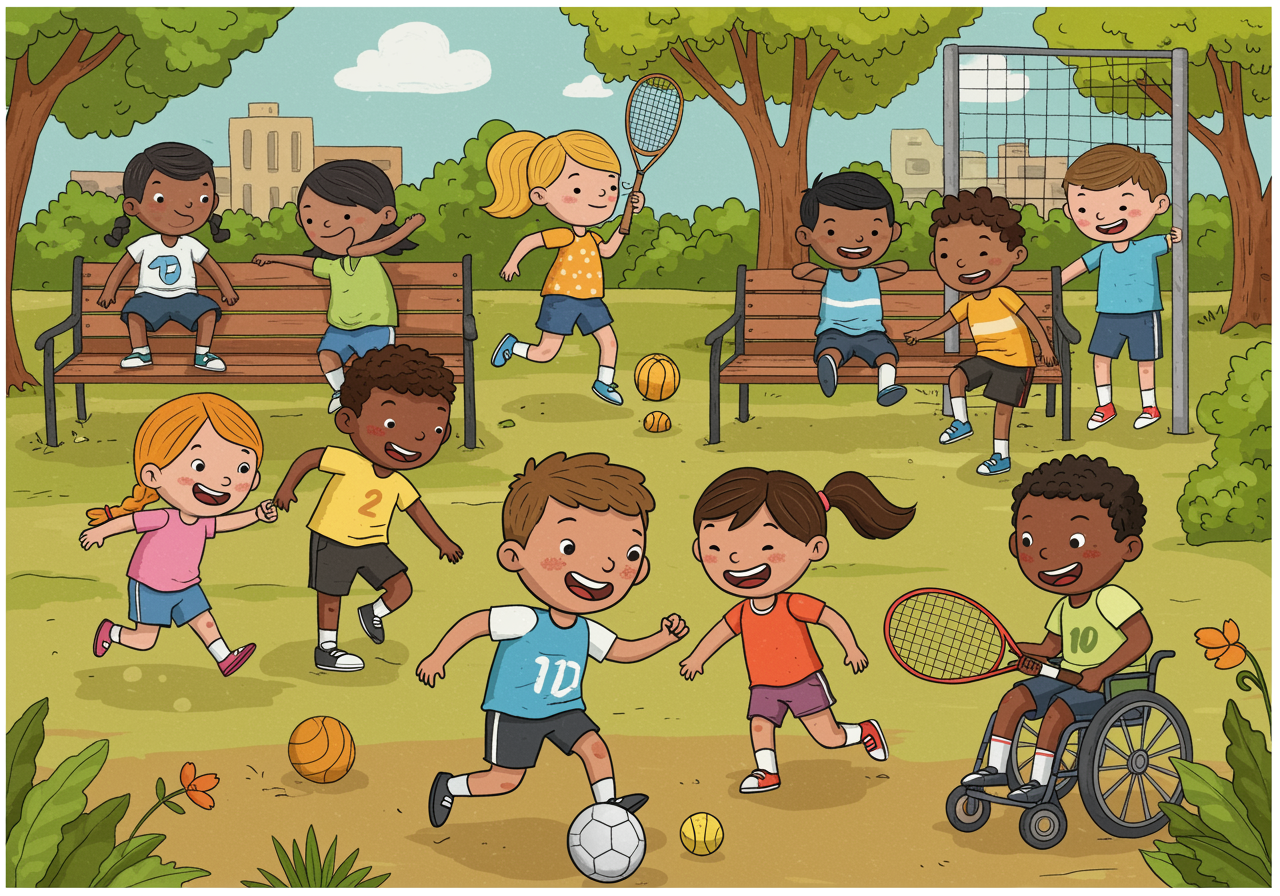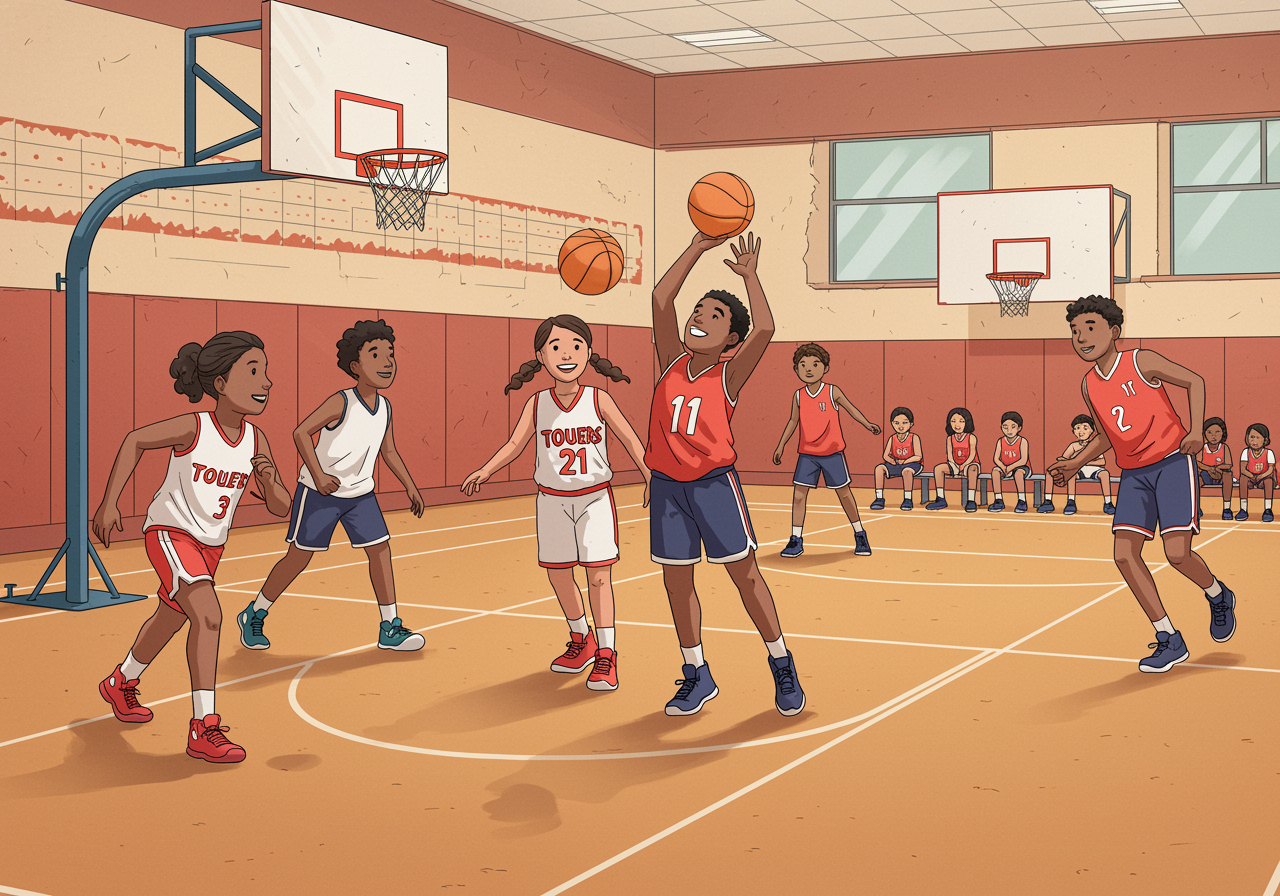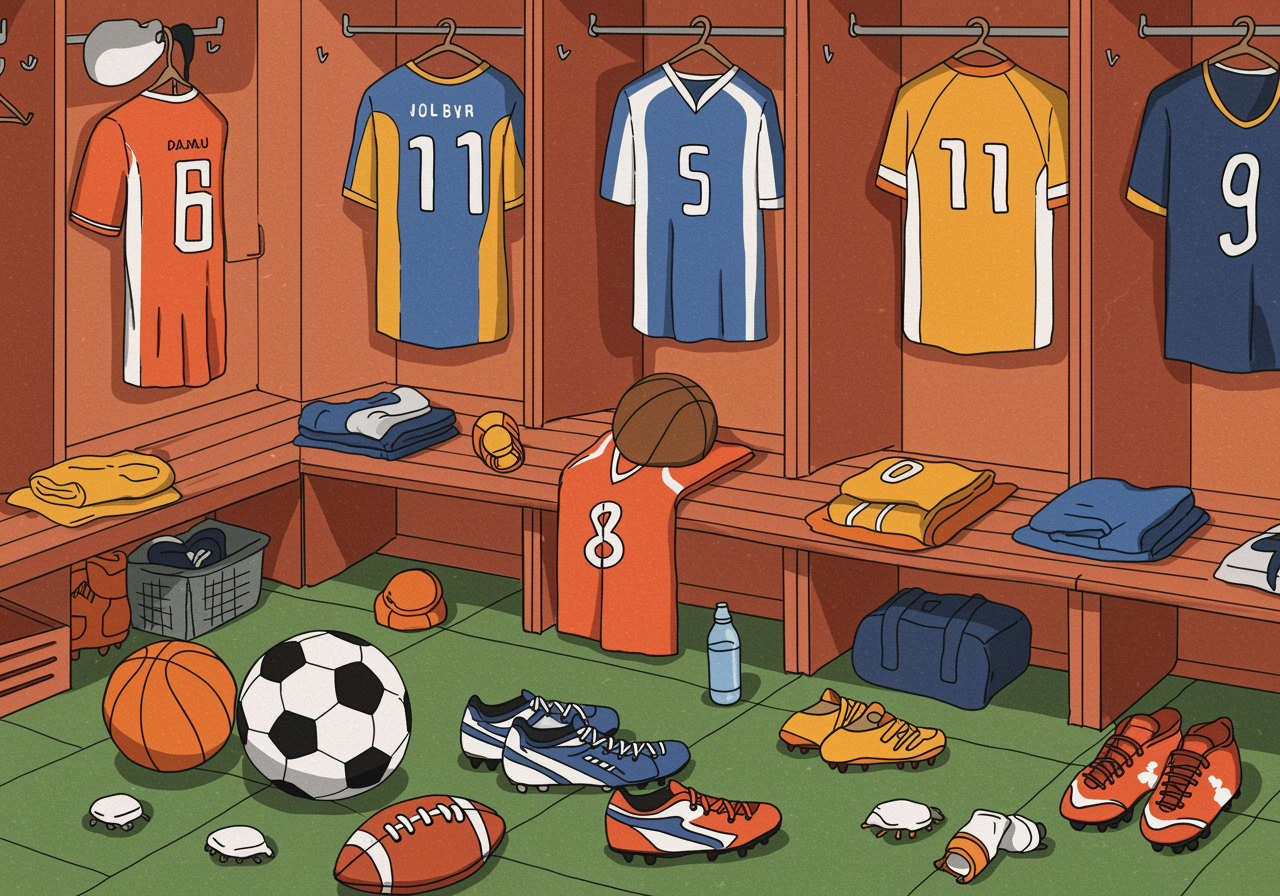When Everyone Wins: The Amazing Power of Inclusive Sports
What happens when sports become about lifting everyone up, not just crossing the finish line first?
Discover how making sports more inclusive creates stronger teams, happier players, and surprising victories that go way beyond scoreboards.
Overview
Think about the last time you watched a sports game – who were you cheering for and why? Sports have this incredible power to bring people together, teach life skills, and build confidence. But what if we flipped the script and focused more on making sure everyone feels valued and included, rather than just celebrating the fastest or strongest? This conversation explores how inclusive sports create unexpected wins for everyone involved, from building stronger friendships to developing problem-solving skills that last a lifetime.

Understand in 30 Seconds
Get up to speed quickly
- Inclusive Sports = Everyone Matters: Instead of only celebrating the star players, inclusive sports make sure every team member feels valued and gets chances to contribute and grow.
- Skills Beyond Scoreboards: When sports focus on inclusion, players develop empathy, leadership, and teamwork skills that help them succeed in school, work, and relationships.
- Competition Can Still Exist: You don't have to eliminate competition – inclusive sports find ways to challenge everyone at their own level while building team spirit.
- Real Benefits for Everyone: Teams that prioritize inclusion often perform better overall because players support each other and work together more effectively.
Real Life Scenario
Situations you can relate to
Imagine your school's basketball team has 15 players, but only 5 can play at a time. In a win-focused approach, the same 5 strong players might play most games while others sit on the bench feeling left out. But what if the coach tried something different? What if they created rotation systems so everyone got playing time, paired stronger players as mentors with newer players, and celebrated improvement just as much as points scored? Think about how this might change team dynamics. Would players be more supportive of each other? Would the bench players stay motivated and keep improving? How might this affect team chemistry during tough games?

Role Play
Spark a conversation with “what if” scenarios
What if you were coaching a soccer team where one player has a disability but loves the game?
- Role play: Take turns being the coach, the player with a disability, and other team members. Brainstorm creative ways to include everyone in practices and games while keeping the sport fun and competitive.
What if your track team had runners of very different skill levels – from beginners to state champions?
- Role play: Role-play a team meeting where you design training sessions and relay race strategies that help everyone improve and contribute to team success.
What if you had to explain to a win-obsessed parent why playing time should be more evenly distributed?
- Role play: Practice having a respectful conversation about the long-term benefits of inclusive sports, using examples and addressing concerns about competitiveness.
FAQs
Frequently asked questions people want to know
Won't focusing on inclusion make teams weaker and less competitive?
Research shows inclusive teams often perform better because players trust each other more, communicate better, and everyone stays motivated to improve.
How do you balance giving everyone a chance with wanting to win important games?
Smart coaches use practices and less critical games to develop all players, then make strategic decisions for big games while still finding ways to involve everyone.
What if some players or parents complain about equal playing time?
Open communication about team goals, celebrating different types of contributions, and showing how inclusion benefits everyone can help address these concerns.
Examples in the Wild
See how this works day to day
- Special Olympics programs show how athletes with intellectual disabilities achieve incredible athletic feats while building confidence and community connections. (Special Olympics International)
- Many youth soccer leagues now use 'equal playing time' rules and smaller field sizes to ensure all kids develop skills and enjoy the game. (US Youth Soccer Association)
- The Paralympic Games demonstrate how adaptive sports create opportunities for elite competition while inspiring inclusion in everyday athletics. (International Paralympic Committee)
- Schools implementing unified sports programs (where students with and without disabilities play together) report improved school climate and reduced bullying. (Special Olympics Unified Sports research)
In Summary
What you should know before you start
- Inclusive sports help everyone develop confidence, leadership skills, and lasting friendships
- Teams that value every player often perform better because of stronger communication and trust
- Competition and inclusion can work together – it's about finding creative ways to challenge everyone
- The life skills learned through inclusive sports benefit players long after the game ends
Pro-tip for Parents
You got this!
If your teen seems resistant to inclusive sports ideas, try connecting it to something they value. Ask them about times they felt left out or when someone included them unexpectedly. Share stories about professional athletes who credit teammates and coaches for their success. Remember, this isn't about eliminating competition – it's about expanding what we consider 'winning' to include personal growth, team chemistry, and life skills development.

Keep an Eye Out For
Find these examples in everyday life
- Local sports teams or leagues that emphasize player development over just winning records
- News stories about innovative coaches who find creative ways to include all players
- Youth sports organizations implementing new policies around playing time and team culture
Explore Beyond
Look up these related research topics
- How different cultures around the world approach competition and teamwork in sports
- The science behind why diverse teams often outperform homogeneous ones
- How video games and esports are creating new models for inclusive competition